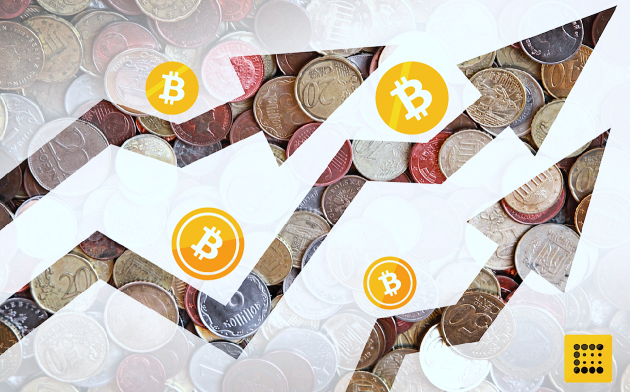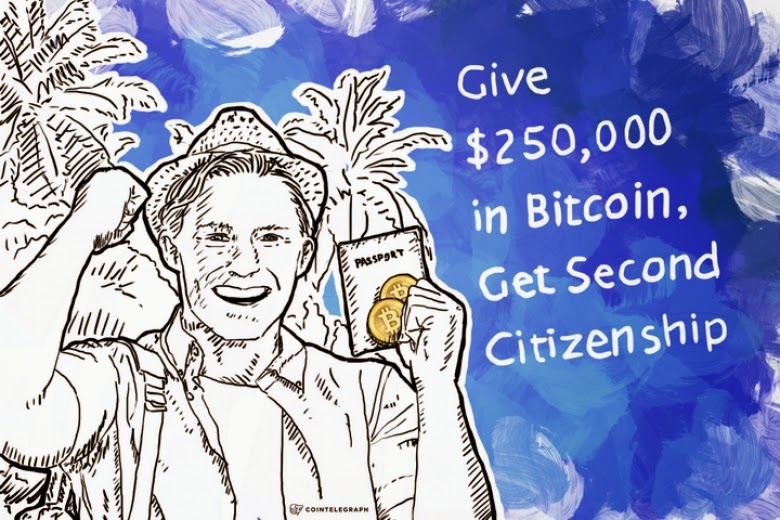Search Results For: russia

Dutch Central Bank to develop its DNBCoin Blockchain
Banks and blockchain: love or hate?
Open your free digital wallet here to store your cryptocurrencies in a safe place.
Bitcoin’s Monthly Recap of June 2015
Open your free digital wallet here to store your cryptocurrencies in a safe place.

How the Bitcoin landscape is evolving in 2014
(CoinDesk) Like any new industry, there are so many areas to explore in the bitcoin space that sometimes make a week’s worth of developmentsit feel like a month or two have gone by.
1. Big-name retailers jumping on board
2. A warming regulatory climate
3. VC firms keep betting big
4. Building on the block chain
5. New emphasis on transparency
Open your free digital wallet here to store your cryptocurrencies in a safe place.

Education to consider for the Bitcoin user
(CoinTelegraph) This month, the number of educational institutions welcoming students who wish to pay using digital currency has increased substantially. This comes as no surprise, however, since the current academic year just ended, registration is opening up for the fall semester.
The King’s College, NYC, US
One of the leading institutions in the United States – The King’s College announced that it will be welcoming students who want to pay using Bitcoin.
The King’s College is a Christian liberal arts college founded in 1938 by Percy Crawford, located in Lower Manhattan, New York.
Now with help of New York’s Coin.co it becomes the first accredited
college in the US to accept digital currency. Dr. Gregory Alan
Thornbury, President of The King’s College stated:
“The King’s College seeks to transform society by preparing students
for careers in which they help to shape and eventually to lead strategic
public and private institutions. Allowing Bitcoin to be used to pay for
a King’s education decreases our costs while simultaneously allowing
our students to be a part of this exciting new technology.”
Team Treehouse
On Thursday June 12, a famous US-based online education provider – Team Treehouse – officially announced that it will be accepting Bitcoin via Coinbase as one of a payment options. The company’s press release stated:
“As one of the fastest growing payment methods, Bitcoin will give
more people across the world the opportunity to learn with Treehouse.”
Treehouse is a place for people who want to learn how to coup with HTML or CSS, make iPhone apps, start their own business.
University of Nicosia, Cyprus
Once again we mention the University of Nicosia,
which was the first to accept Bitcoin for payment of tuition and other
fees. Dr. Christos Vlachos, Chief Financial Officer for University of Nicosia stated:
“Digital currency will create more efficient services and will serve
as a mechanism for spreading financial services to under-banked regions
of the world. In this light, we consider it appropriate that we
implement digital currency as a method of payment across all our
institutions in all cities and countries of our operations.”
Anyone who wants to advance their education here will probably find a
an area of interest they’re looking for – University of Nicosia offer
schools of business, education, humanity, social science, law,
engineering and arts.
A big advantage of the University of Nicosia is that it is accepting
Bitcoin throughout their whole University network, including affiliated
institutions in London, Cyprus, Greece, Romania and others.
University of Cumbria, UK
In the beginning of the year, the University of Cumbria in the United Kingdom also announced that it will accept Bitcoin for the payment of fees. The founder and director of IFLAS, Professor Jem Bendell, stated:
“We believe in learning by doing, and so to help inform our courses
on complementary currencies, we are trialling the acceptance of them.
The internal discussions about currency and payment innovation and the
practical implications for different departments have been insightful.”
The acceptance of Bitcoin is limited to the two programs only – Certificate of Achievement in Sustainable Exchange and Postgraduate Certificate in Sustainable Leadership. Both courses are already in progress as a trial though it shouldn’t be the last one as “the university will learn from this trial and develop its awareness of innovations in complementary currencies and payment technology.”
Language centers
Additionally, there are also various private languages studios all over the world happy to accept digital currency.
A2Z School of English could be the first English as a Second Language (ESL) school in the world to accept digital currency. The announcement that it will adopt Bitcoin as a payment method was published back on November 5, 2013. A2Z School of English was founded in 2006 by James and Luciene Taylor and today has locations in Manchester, London and Dublin, offering various English language classes. BairesClases accept Bitcoin for Spanish classes. You can have face to face lessons in Buenos Aires Argentina or classes over the Internet for students anywhere in the World for anyone from beginner to advanced. Ru-SprachStudio.ch offer Russian courses in Zürich or Zug, Switzerland for Bitcoin. Customers may choose one-on-one private lessons or lessons in groups of 3-4 people. Their teaching approach also uses modern methods to develop your ability to communicate in the Russian language. Cinta Bahasa in Bali, Indonesia, offers Indonesian Language courses to foreigners and they also accept Bitcoin. They have schools in Ubud, Sanur, Kuta, and Canggu, Bali to teach students the language they will need to feel comfortable travelling around in Indonesia. Educational institutions are a major driver in the world’s progress. By embracing cryptocurrencies, these schools and universities are demonstrating their willingness to prepare students for a world with cryptocurrencies and a better future.
Open your free digital wallet here to store your cryptocurrencies in a safe place.

Give $250,000 in Bitcoin, get second citizenship
with a Las Vegas escort.
Bitcoin these days.
that sets clients up with citizenship to balmy Caribbean island-nation St.
Kitts and Nevis, payable in cryptocurrency. St. Kitts and Nevis has offered a
‘citizenship by investment’ program since 1984 that accepts investment into the
local economy in exchange for a spanking-new passport.
isn’t cheap. Wannabe citizens must either buy local real estate worth $400,000
or more, or donate at least $250,000 to the Sugar Industry Diversification
Foundation (SIDF) – on top of a nonrefundable application fee of about $60,000
per applicant plus an additional $30,000 for each one of his or her dependents.
holding a St. Kitts passport offers a number of benefits. Aside from the
stunning seas, sands, and climate offered by the Caribbean country, St. Kitts doesn’t
take any income, wealth, or inheritance taxes; citizens get visa-free travel to
140 countries and a 10-year multiple-entry visa to the United States.
countries or ones with invasive policies on individual privacy, the citizenship
process offers more abstract benefits: freedom and privacy.
stories from around the globe about upheaval, increased taxes, and governments
exerting more and more control over citizens’ freedoms and privacy,” the
Passports for Bitcoin website says. “Having a second citizenship and passport
in a stable country is now a must in order to hedge against governmental
intrusion and excessive taxation.”
home countries aren’t notified that their citizens have applied for or received
a second citizenship.
Kitts passport with Bitcoin isn’t clear. The website of the project’s parent company,
International Investments & Consulting, Ltd., says it has processed over
100 applications, though it does not specify how they were paid for.
popular amongst the rich and famous. Roger Ver, an American Bitcoin
entrepreneur and ‘angel investor’ in Bitcoin startups, has bought himself a
passport to St. Kitts, as has as the so-called “Most
Interesting Man on Instagram” millionaire/poker player/playboy Dan
Bilzerian.
ago as a hedge against possible world political turmoil which could negatively
affect the United States,” Bilzerian wrote in a testimonial
on the Passports for Bitcoin website. “I value freedom more than almost
anything else and a second or third passport provides me insurance just in case
the U.S. government decides to value security over freedom.”
St. Kitts citizenship last month after fleeing the country under pressure from
the government over data protection and privacy.
passport in Bitcoin.
Open your free digital wallet here to store your cryptocurrencies in a safe place.
